#Dominic behan
Explore tagged Tumblr posts
Text
#OTD in 1945 – Birth of folk singer, songwriter, and guitarist, Christy Moore in Newbridge, Co Kildare.
Christy Moore is one of the founding members of Planxty and Moving Hearts. In 2007, he was named as Ireland’s greatest living musician in RTÉ’s People of the Year Awards. The former lead-vocalist and chief songwriter of Planxty and Moving Hearts, Moore helped to bring the musical traditions of Ireland up to modern standards and he has been a major inspiration to many modern Irish…

View On WordPress
#Andy Irvine#Christy Moore#Co. Kildare#Dominic Behan#Donal Lunny#Guitarist#Irish Republican#Liam O&039;Flynn#Luka Bloom#Moving Hearts#Newbridge#Planxty#Shane MacGowan#singer#songwriter#The Dubliners
7 notes
·
View notes
Text
87: Dominic Behan // Easter Monday, 1916: Songs of the I.R.A. (Irish Republican Army)
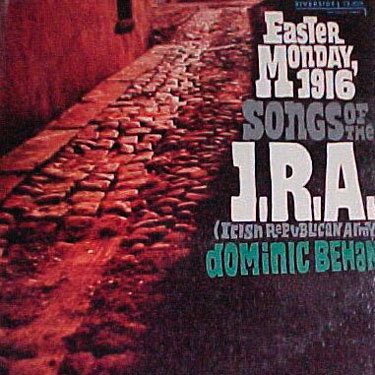
Easter Monday, 1916: Songs of the I.R.A. (Irish Republican Army) Dominic Behan 1957, Riverside
I was going to save this one for a holiday like Bloody Sunday, Bloody Sunday, or Easter Monday, but then I remembered every day is the anniversary of something bad the English did to the Irish, so now’s as good a time as any to look at Dominic Behan’s Easter Monday, 1916: Songs of the I.R.A. (Irish Republican Army). Like his famous elder brother Brendan, Dominic Behan was an active IRA man and prolific writer across a number of genres but is probably best known as a writer of patriotic songs (e.g. “Come Out, Ye Black and Tans,” “The Patriot Game”). His was a talented family—uncle Peadar Kearney wrote “A Soldier’s Song,” the national anthem of the Republic of Ireland. Songs of the I.R.A. (1958) collects songs written between 1916 and 1955, some by Kearney, most by unknowns, and one by Behan himself. They’re arranged in roughly chronological order and divided into songs of the Irish War of Independence (roughly 1916 to 1920), the so-called “Black and Tan War” (1920 to 1922), and the Irish Civil War (ongoing, as far as Behan was concerned).
youtube
With the caveat that I’m no historian, some context is in order. When Songs of the I.R.A. was recorded in November 1957, the IRA was in the midst of its resurgent Border Campaign against targets in Northern Ireland, and it’s reasonable to guess Behan was motivated to reinforce the connections between the present struggles and those of thirty years past, and to help with propaganda efforts beyond Ireland’s shores. (In particular, by the ‘50s the Irish population in North America was larger than that of Ireland itself and was a reliable source of foreign funding for the war efforts.) What Behan probably could not have foreseen was that the Border Campaign was on the verge of sputtering out, and that hostilities on the island were to enter a period of relative glasnost until the late ‘60s.
These stripped down recordings find Behan accompanied by John Hasted (a leftist British physicist and minor figure in the English folk revival) on, variously, guitar, banjo, or concertina. There are a few original melodies, but most are new topical lyrics addressing recent events set to traditional airs. This isn’t subtle fare, nor is it intended to be: the IRA men are universally clever and brave and worth ten of the English and their traitorous vassals, who’re brutes and bumblers all. IRA life didn’t offer much in terms of worldly fortune, as most volunteers could expect to end up dead or in jail inside a year of signing up, but it did offer the potential for martyrdom. For IRA men and their families hearing the names of fallen ordinary boys like Kevin Barry and Feargal O’Hanlan preserved in popular ballads offered some assurance that their own probable sacrifices would be honoured and recalled.
There isn’t a huge amount of variety to the material here, but the songs are well-sequenced and Behan and Hasted do a good job of tailoring their approach to each one. These are story songs and Behan is a game narrator, flipping between a plummy British accent and a broad Irish brogue on the talky “The Ould Alarm Clock,” singing sentimentally and in a firmly traditional mode on the tender lament “Slean Libh.” Hasted is excellent on all three of his instruments, but he’s at his finest on banjo pieces like the elegiac “Kevin Barry.” A lyric of a young rebel hung in 1920 bleakly set to the tune of “Rolling Home to Merry England,” Hasted’s shivery picking matches Behan’s quavering delivery step for step.
youtube
Still, the highlight of the collection is Behan’s own “The Patriot Game,” a song seeing its first release here that was soon to be a standard. Though Behan’s loyalties are abundantly clear, it is nearly unique among these songs in that it does not look away from the horrors men are compelled to do in even a just war:
Come all ye young rebels, and list while I sing, For the love of one's country is a terrible thing. It banishes fear with the speed of a flame, And it makes us all part of the patriot game.
My name is O'Hanlon, and I've just turned sixteen. My home is in Monaghan, and where I was weaned I learned all my life cruel England's to blame, So now I am part of the patriot game.
This Ireland of ours has too long been half free. Six counties lie under John Bull's tyranny. But still De Valera is greatly to blame For shirking his part in the patriot game.
They told me how Connolly was shot in his chair, His wounds from the fighting all bloody and bare. His fine body twisted, all battered and lame They soon made me part of the patriot game.
It's nearly two years since I wandered away With the local battalion of the bold IRA, For I read of our heroes, and wanted the same To play out my part in the patriot game.
I don't mind a bit if I shoot down police They are lackeys for war never guardians of peace And yet at deserters I'm never let aim The rebels who sold out the patriot game
And now as I lie here, my body all holes I think of those traitors who bargained in souls And I wish that my rifle had given the same To those Quislings who sold out the patriot game.
That line, For love of one’s country is a terrible thing, sticks out, doesn’t it? Terrible doesn’t mean simply ‘very bad,’ as it tends to in contemporary usage, but formidable and unconstrained (echoing perhaps the ‘terrible beauty’ in Yeats’ “Easter, 1916”). There was hate for the English in the milk the dead boy O’Hanlon was weaned upon, and as soon as he was old enough to hold a gun he picked one up and was shot all to pieces for it. The narrative hardens as it goes on. If patriotism and the desire to be free of tyranny is a game, so be it; if the O’Hanlons of the struggle don’t choose their role so much as they’re made part of the game by the colonists and the IRA alike, so be it; if the Irish must fight the Irish to see the 32 counties united, so be it. Whatever your position on the politics of the day, it is an uncompromising statement of belief, made all the more chilling by being set to such a soft melody. It’s easy to imagine a loyalist sitting down at the wrong bar in Belfast and hearing, with slow dawning dread, the first chords of “The Patriot Game” begin to drift from some shadowy corner.
87/365
#dominic behan#irish republican army#irish republicanism#irish folk music#1916#protest songs#army songs#belfast#music review#vinyl record#'50s music
1 note
·
View note
Text


Okay here we go these are the two songs I was thinking of as the biggest offenders. while I know what they mean and understand that Henry Joy McCracken or even just Henry McCracken has wayyy too many syllables for these songs the first time I heard these recently I did have a moment of like. sorry you followed fucking who
It's so funny to me when rebel songs or poems or whatever abbreviate Henry Joy McCracken to just Henry Joy because while Henry Joy McCracken was sound Henry Joy was um. the guy who whipped the Volunteers into an anti Catholic fervour and tried to use them to murder Wolfe Tone and Samuel Neilson on at least one occasion
16 notes
·
View notes
Text
'…Paul McCartney was such a fan of Dominic Behan’s ‘Liverpool Lou’ that he recorded it with the Scaffold'
(Liverpool - Wondrous Place by Paul Du Noyer, 2002; Part (I), (II), (III), (IV), (V), (VI), (VII), (VIII), (IX), (X), (XI), (XII), (XIII), (XIV), (XV), (XVI), (XVII), (XVIII), (XIX), (XX), (XXI), (XXII)
Q: “Liverpool Lou” was another massive hit for The Scaffold. That is linked with the recording of the McGear album. A: It was. The BBC telly wanted The Scaffold to do a sketch with the actress, Rita Tushingham and Derek Guyler. They said “Can you sing the song for us? I couldn’t come up with a song. I was working with our kid and Wings in Strawberry and said “Have you got any ideas for a Scaffold song? I’m doing this telly.” He said “Oh, you wanna do Liverpool Lou.” I said “No, it is too folky, too Spinners.” He said “No, just listen to it.” It was very old and had been around for centuries in Liverpool. I had forgotten how it went and certainly didn’t know the words. I said to BBC telly people “Could you get me a song called Liverpool Lou?” They sent me two versions. One was by Dominic Beehan and the other was by Delaney and Bonnie. Scaffold tried to trad arrange ‘Liverpool Lou’ but Dominic Beehan had got to it before us and copyrighted it. He got all the writing credits and all of the money for Liverpool Lou. The other version by Delaney and Bonnie was absolute magic. Our kid heard those two opposites and said “You want to go in the middle there.” He did it, he made that song. That is just Wings with in the middle of ‘Liverpool Lou’, a 10CC gizmo. That’s the weird sound in the middle. Q:The Godley and Creme invention. A: That’s right. It’s hard to play but I think our kid played it. Norm Yardley does the gob iron on Liverpool Lou, I was with him the other night. Nice track.
(Mike McCartney / McGear – The Strange Brew, 2016)
youtube
Scaffold’s latest single ‘Liverpool Lou’ released on May 3rd on the Warner Bros. Label. Record No. K 16400. It’s an old song, credited to Brendan Behan’s brother, Dominic. Paul produced and arranged it. In the middle there’s a gizmo solo, it’s a new instrument invented by Lol Creme and Kevin of 10CC, who partly own ‘Strawberry Studios’. There are only two gizmos in the world.
(From Wings Fun Club newsletter N°1, 1974)
Oh Liverpool Lou, lovely Liverpool Lou Why don't you behave just like other girls do? Oh why must my poor heart keep following you Stay home and love me, my Liverpool Lou When love is pleasing, and love is teasing And love is a pleasure, when first it is new love And as it grows it older, and love it grows colder And that fades away, love, like the morning dew <…> When I go out walking, I hear people talking School children playing, I know what they're saying They're saying you'll grieve me, that you'll deceive me Some morning you'll leave me all packed up and gone <…> Sounds from the river Keep telling me ever That I should forget you Like I never met you Please tell me their songs of Was never more wrong, love Please say I've been gone, love To my Liverpool Lou
Another song where Paul used a Gizmo - I’m Carrying:
youtube
McCartney originally recorded the song accompanied by just his acoustic guitar during the London Town sessions aboard the stern of the yacht Fair Carol in the Virgin Islands on 5 May 1977. In December 1977, he overdubbed orchestral strings and he also overdubbed his own playing of an electric guitar using a Gizmo. The Gizmo is a device invented by 10cc members Kevin Godley and Lol Creme, which allows a guitar to be played by vibrating the strings rather than plucking them. (x)
By dawn's first light I'll come back to your room again With my carnation hidden by the packages I'm carrying, something I'm carrying something for you Ah, long time no see baby, sure has been a while And if my reappearance lacks a sense of style I'm carrying, something I'm carrying something for you I'm carrying I'm carrying, can't help it I'm carrying I'm carrying something for you
People say, ‘What does this song mean?’ and I say, ‘Well, it’s up to you.’ It can mean a million things. What am I carrying here? I kind of make it clear that it’s packages. So I’m like Dapper Dan, with my carnation hidden by the packages. I’m bringing presents for you, I’m carrying something for you, but also, when a woman is having a baby, she’s carrying. There are a couple of other meanings that rule themselves out. One is carrying a gun. Another is carrying drugs. One meaning that might have a little traction is the idea of one person ‘carrying’ a band, with the others riding on the coattails. I’m not even sure about that. I’m just playing with the word ‘carrying’. It’s a very ambiguous little song, but that was the sort of freedom of Wings, to do something a little bit ambiguous. It’s been suggested that this song sounds Lennon-esque. I’d admit to it if it were, but to me it sounds more McCartney-esque: just the little voice. I couldn’t imagine John doing quite such a little voice. But you know, if it’s seen as Lennon-esque, that’s no great problem. We did learn how to write songs together, after all.
(Paul McCartney, The Lyrics, 2021)
#liverpool lou#i'm carrying#paul mccartney#mike mccartney#the songs we were singing#the scaffold#wings#Youtube#paul du noyer
23 notes
·
View notes
Text

Mai ek weak boy hoon mujhe girls apne jutti ke nok pe rakhti hai. Meri young Sister jo age me just 20 year h aur mai 30 saal ka hoon. Meri behan bahut dominant thi aur mujhe jutti ke nok pe rakhti thi kyunki mai bhikhari jobless tha aur meri behan job krti thi . Mujhe ek din langta krke jamke pitai ki phir raat me hi ghar se bahar nikal mai girgira ke bheek maang rha tha aur langte fatichar haalat me pados ki aunty ne dekh lia aur mai aunty se girgira ke bola ki mam please behan ko bolo mujhe aise raat me langta krke nahi nikale phir Aunty ne mujhe bahut zalil kia aur boli acha ki hai tujhe langta krke bahar nikal di tu isi layak hai ab jldi se mere ghar me aake toilet saaf kr nhi to gaand tod dungi meri to haalat kharab ho gya ab mai samjh gya mai ek worthless loser hoon
8 notes
·
View notes
Text
A Walk & A Whiskey Tasting - Galway, Ireland
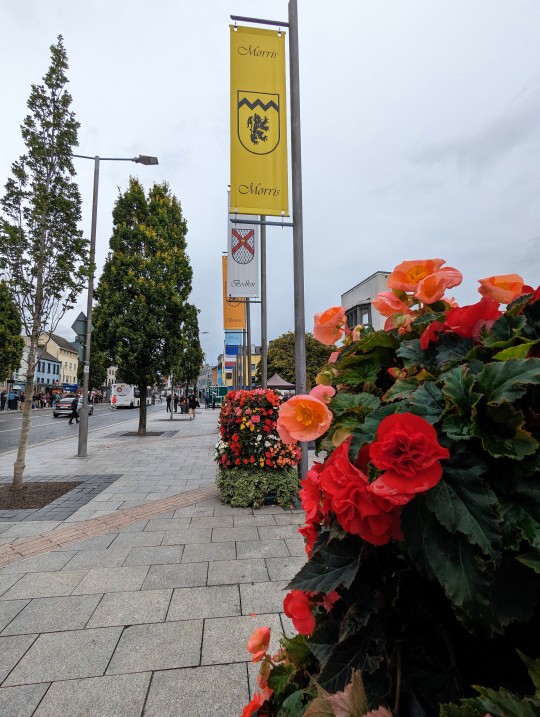
We spent the day today wandering around Galway. We started at Eyre Square, where there was a little market happening. We didn't see anything that we had to have, so we just wandered around the square.
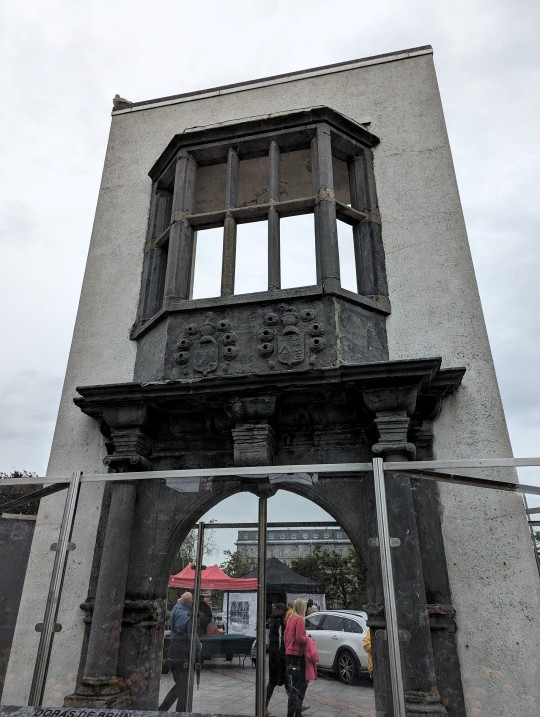
The Browne Doorway - this door and window were removed from the mansion of Dominic Browne and his wife, Maria Lynch. It is an example of Renaissance architecture and is dated 1627.
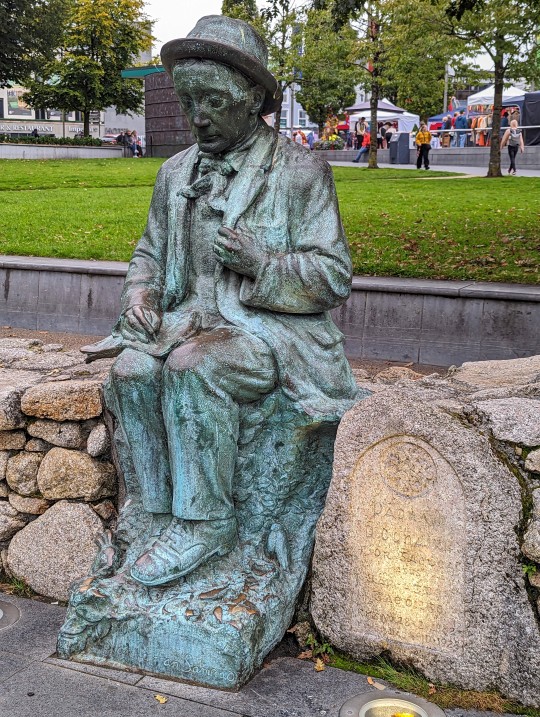
Statue of Padraic O Conaire (Patrick Joseph Conroy) - recognized as "the first significant writer in modern Irish. His short stories helped preserve the Irish language. In 1893, less than one percent of the Irish population spoke only Irish and there were only 5 Irish-language books in print.

There is also a memorial to JFK on the square.
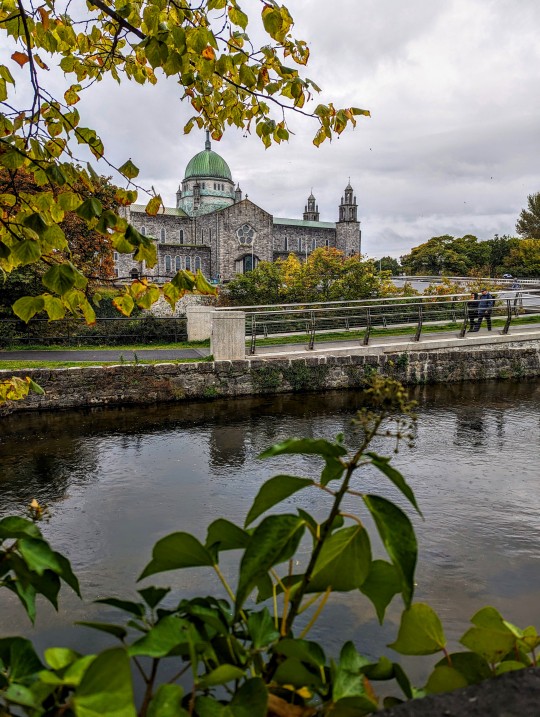
We visited the Galway Cathedral - it was a bit disappointing, as the inside was pretty modern in appearance.
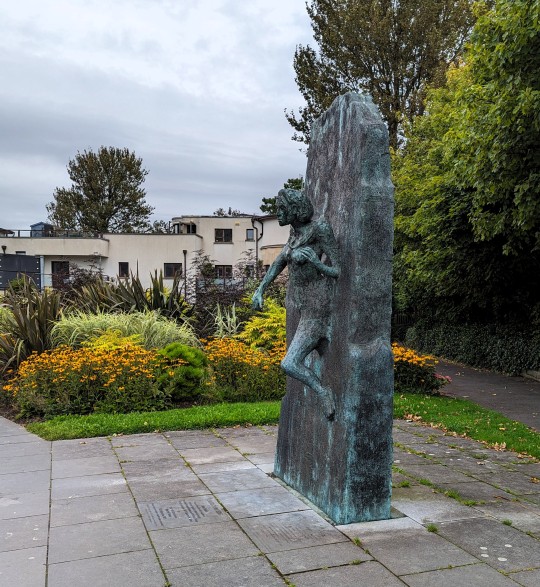
"Equality Emerging" statue, created by John Behan - one of Ireland's most renowned sculptors. The dedication on the statue reads: "The statue is dedicated to people everywhere who are struggling for equality and to those suffering because of its absence. The emerging figure represents the force for equality, the wall, those people and systems in opposition."
We checked out the campus of the University of Galway and its beautiful ivy-covered buildings:

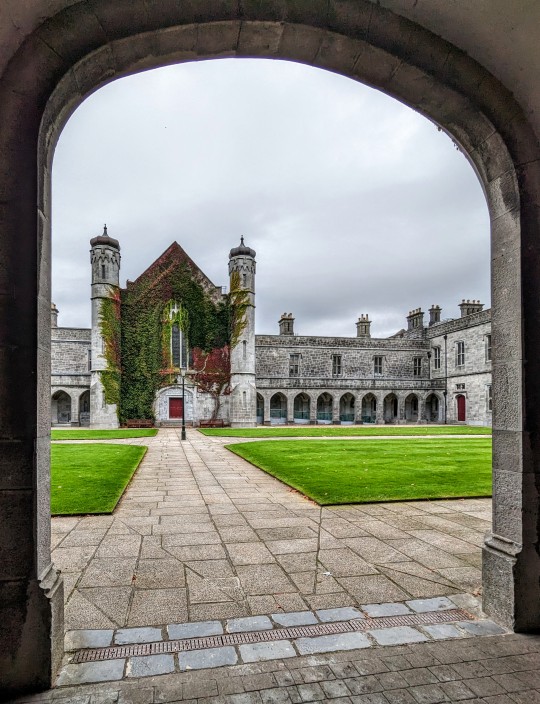
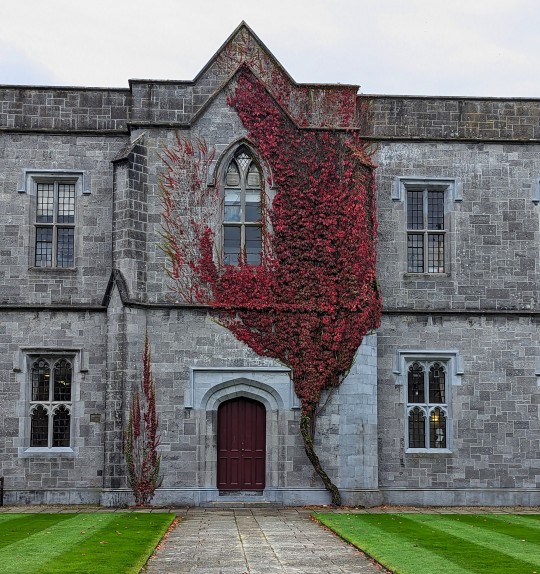

We then headed toward the town center - enjoying the murals, streets, and historic sites:

We had a good time trying to identify all of the rock stars in this mural on the side of a pub.
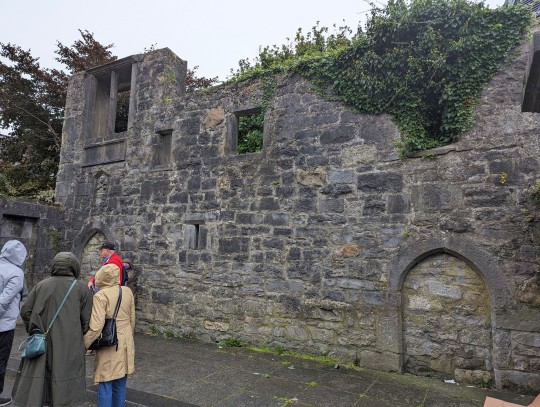
Lynch Memorial Window - "as legend has it, in 1493 the town's mayor hung his son from this window for murdering a visitor." WOW!
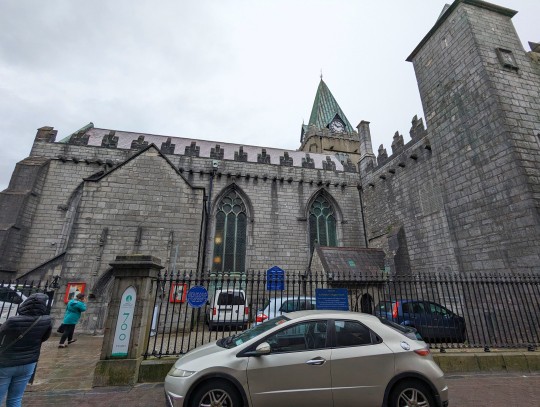
The Collegiate Church of St. Nicholas - founded in 1320.
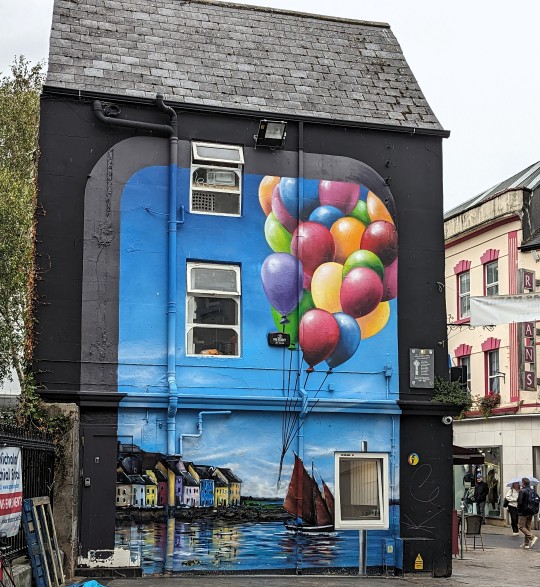
Another beautiful mural in the town center.
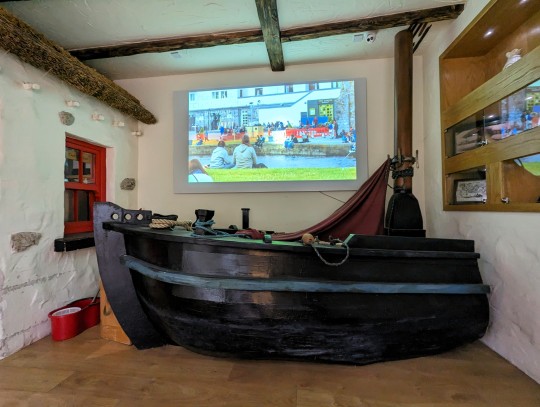
We stopped in at The Legend of the Claddagh Ring and watched the romantic story of how the ring came about.
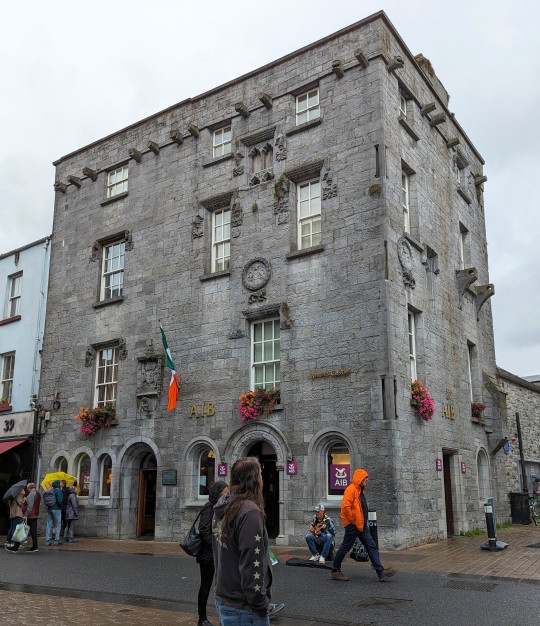
We walked by Lynch's Castle, a nice example of a medieval fortified house, parts of the building date back to the 14th century. It is currently housing a bank.
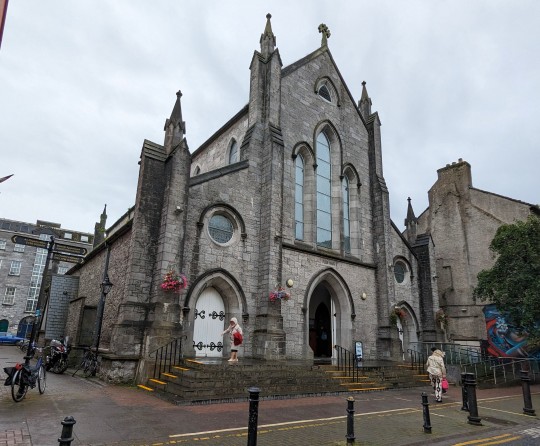
St. Augustine's Catholic Church.
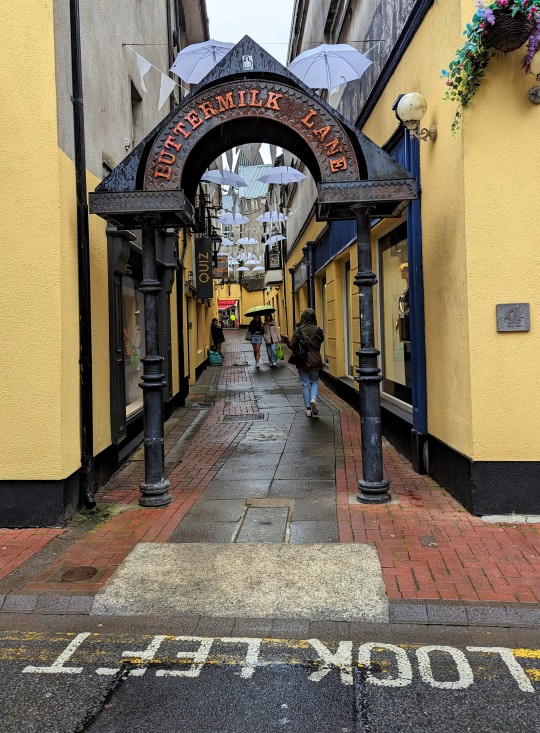
Shopping area along Buttermilk Lane - notice the LOOK LEFT painted on the road, that is for tourists to make sure that we don't get run over because we are looking in the WRONG direction!
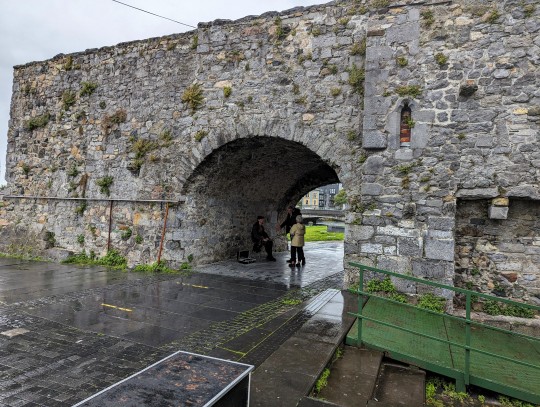
The Spanish Arch, dating back to 1584, is built on the left bank of the Corrib River.
Our last stop of the day was the Galway City Museum, we timed our visit perfectly as we arrived just as the rain started getting serious. We wandered through the museum, learning about the city of Galway and a little Irish history.
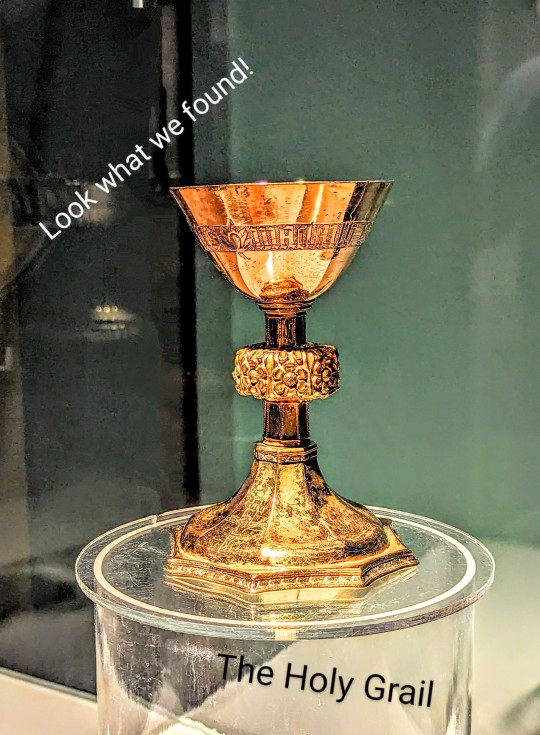
The best part of our visit to the museum!
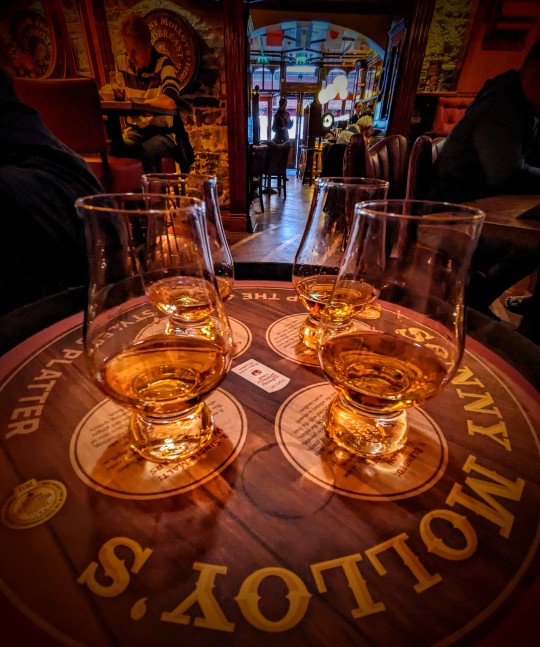
We stopped at Sonny Molloy's for lunch and after lunch we decided to order a "whiskey platter".....needless to say, we headed home afterwards!
2 notes
·
View notes
Audio
The Lost Tribe of Wicklow - Christy Moore [Lily] The Well Below The Valley - Planxty [The Well Below the Valley] Follow Me Up To Carlow (written by Fiach Mac Aodha Ó Broin) - Screaming Orphans [Taproom] Ghost Riders In The Sky (written by Stan Jones) - Screaming Orphans [Lonely Boy] March Into Trouble - Horslips [The Book of Invasions] Trouble (With a Capital T) - Horslips [The Book of Invasions] King of the Fairies - Horslips [Dancehall Sweethearts] 1969 - The Tossers [Smash The Windows] Trip to Jerusalem (written by Christy Moore) - Pól MacAdaim [Forsaken Land] Another Day - Pól MacAdaim [My Name Is Troy Davis] I'd Rather Be Dancing (written by Wally Page) - The Amadans [Sin é] Running Bear (written by 'The Big Bopper') - Stiff Little Fingers [All The Best] Harp - Stiff Little Fingers [Get a Life] Sleep on a Clothes Line - Rory Gallagher [Tattoo] The Irish Spring - David Rovics [1939] Bás in Éirinn - Black 47 [Bankers & Gangsters] The Night The Showbands Died - Black 47 [Last Call] Advertising - George Carlin Amazing Offer - Horslips [Short Stories / Tall Tales] Stacey Lawlor - Clan Of Celts [Beggars, Celts And Madmen] Lord Randall's Bastard Son - The Walker Roaders [The Walker Roaders] Seo Yun - The Walker Roaders [The Walker Roaders] The Voyage of the Sirius - John Spillane [The Man Who Came In From The Dark] Arkle (written by Dominic Behan) - Seamus Kennedy [Party Pieces] Concrete Road - Seamus Kennedy [Live!] Cushialitee - Paddy Nash and The Happy Enchiladas [When We Were Brave] Tom Williams - Flying Column [Favourite Irish Rebel Ballads] Home By Bearna - Christy Moore [Whatever Tickles Your Fancy] Farmer Michael Hayes - Christy Moore [Folk Tale] The Galway Farmer - Davey Arthur & Co [Celtic Side Saddle] Euston Station - Davey Arthur & Co [Celtic Side Saddle] Henry Joy - Goitse [Úr] The Queen of Argyll - Goitse [Úr] The Hare in the Heather - The Wolfe Tones [Belt Of The Celts] The Tinvane - Coscán [Dinnsenchas (Lore of Places)] A Warning to Conquerors/ Dublin 1913 - Colm O'Brien [Thomas MacDonagh: Poet and Patriot] The Poems of a Good Man · Martin Butler & John Owens [Thomas MacDonagh: Poet and Patriot] The Snows - Pól Mac Adaim [Forsaken land] Crabs In The Skillet - Horslips [Drive The Cold Winter Away] I Roved Out - Clear the Battlefield [Set Me Free] The Rights of Man - Clear the Battlefield [Set Me Free] Allende - Christy Moore [Live at Vicar Street] Chestnut - The Walls [HI-LO] Grian Gheal Lonrach - The Walls [Ceol 10 Súil Siar] Big Blue Whale - Gypsy Rebel Rabble [The Under Over Album] I'm Moving On - Taste [Taste] If I Don't Sing I'll Cry - Taste [On the Boards] Mama Nature Said - Thin Lizzy [Vagabonds of the Western World] The Hero And The Madman - Thin Lizzy [Vagabonds of the Western World] Vagabond of the Western World- Thin Lizzy [Vagabonds of the Western World]
#Music Compilation#Saint Patrick's Day#Christy Moore#Thin Lizzy#Rory Gallagher#Taste#Stiff Little Fingers#The Walls#Horslips#Screaming Orphans#The Tossers#Planxty
7 notes
·
View notes
Text
Resilience in Reflection: Mayaa SH's Response to Bullying and Character Slurs

"Dobaara Bhauka Toh Dekh Leyna" ... Mayaa SH
The Gamechanger Statement that changed the tidal wives of time for Mayaa SH to sit and reflect on the character assassination and the trauma of dealing with slurs and the toxicity that grow stronger every time bullies get away with their intimidation tactics in this country in the name of how progressive we are ..
Mayaa SH is a prominent Indian poetess, memoirist and a known name in Contemporary Literature whose work is known for her open discussion on women’s rights and voices and experience of being an Indian woman. Most of her writings deals with women living in patriarchal society (male dominated society). Female sensibilities are deeply spread through her writings along with her extensive work for gender neutrality. Mayaa SH is best known for getting logical congruence for understanding the role of tradition and societal dogma in shaping women's lives and identities speaks on how she underwent character assassination and the resistance she culminated as the urge to not react. In her words, "It's natural to want to defend yourself, but this can often make the situation worse. Reacting can give the person who is attacking you the attention they want, and it can also make you look guilty or defensive." In summary, Mayaa's work is often examined through a feminist viewpoint because of its unapologetic exploration of women's lives, desires, and struggles in a society marked by patriarchy and tradition. Character assassination involves triangulation instead of direct communication, gossiping, misuse of power and authority, manipulation of the truth, deceit, groupthink, double-speak, spreading of rumors, unhealthy egotism, and narcissism are used to defame and cast doubt on someone's morals and integrity.
Developmental Feminist, A known name in Contemporary Literature, Social and Legal Activist recalls a real-life incident that forced her to write her most powerful composition "Kotha" in an advent of her deep reflection of the progression of mind and mindset. Recalling a situation in which the country's strongest champion of women's power was completely shocked when she found herself in a dangerous series of events, akin to a nuclear fission reaction where one was caught unaware with a circle of almost uncertainty. This was in retaliation for the punishment he received for exposing the truth with respect to some other matter. This forced Mayaa SH to think and redefine what empowerment really is. In a highly uncertain and sensitive situation that included a young man and woman from the state of Uttar Pradesh sent her a threatening message in a very derogatory manner. Those messages ended with the words “Dobara Bhauka Toh Dekh Lena”… It was a game changing moment that made Mayaa think that the value of life has become almost zero and considering the seriousness of words that spread hate crimes. Apart from this, what was even more shocking was the obscene language that the girl used and Mayaa had to go through, who after misunderstanding the situation, threatened to humiliate Mayaa by calling her characterless and questioning the morality of her character.
Apart from this Mayaa also received insights on "Being called a Broker or a Dalal" "Bhai-Behan",
"Selling Girls" etc. and all the defense tactics intended to deploy to throw doubt on the accusation upon her with a clear vendetta that "If you expose my sin then I will attempt to discredit your discovery by highlighting your bad character." We are in the 21st century, yet such incidents happen in which girls and women are considered an object and used as a medium to fulfill the desires of some people and the next day they are nothing. Since ancient times, the objectification of women is deeply rooted in patriarchy. The underlying notion of deep understanding of life is that there are people who are being sold like commodities in the market to become slaves, brokers, and it is extremely worrying that those who find out the truth also become victims of this by getting exposed to abuse and threats. In this kind of discursive life, women have also been analyzed to be part of bundles of things that are paraded, bid on, sold and traded, despite the fact that women today are making huge contributions to the development of their country in various aspects, women are still being treated as a commodity. Even in many brothels, women are used as an object to commodity multiple commercial needs. Their administrators trick buyers from rich families into buying young children or babies.
Embarrassed by the stigma attached to unmarried mothers, or impoverished women, they are encouraged to donate their children to them, who then sell them to wealthy donors abroad. The word "donation" instead of "payment" for the child becomes a cover to hide the business. The engagement between the discipline of international relations and feminist theory has sparked concerns about the underlying gender dimension of the so-called gender-blind zone and prejudices still held for women today, and has given rise to a rich and complex range of analyses. This attempts to capture various aspects of invisibility, marginalization and objectification of women even today. However, many countries have laws promoting gender equality and banning harmful practices such as female genital mutilation (FGM) and child marriage and globally, despite maternal mortality rates having been cut in half, women still face significant challenges in exercising their rights. Nearly 800 women die every day during pregnancy and childbirth, and more than 200 million women who want to use modern forms of contraception are unable to access services.
"कोठा"
अंधेरी दुनिया के कोने में रोशनी धीमी हो गई है,
लेकिन दिल आत्मा की पवित्रता में रोशन रहते हैं,
अंधेरे की छाया में एक कोने में एक लापरवाह फुसफुसाहट रहती है,
जो समाज द्वारा निर्मित वेदना के महलों में रोता है।
कौन कहता है कि छुपी वो काली उज्याली रात है?
निशा की चांदनी में तो सिर्फ अंधेरा है,
मखमल का एहसास सिर्फ महलो में नहीं,
दिल की गहराई की वो बात है।
जलते दीए उस मोहब्बत की गली में रोशन हुआ करते हैं,
जहां क्षितिज के उस पर एक दुनिया में हज़ारों समय ज़ैया करते हैं,
मोहब्बत के दिलदारो से जान से जाना तक नहीं है तक नहीं है,
जहां हजारों यहीं अश्क के पियाले पिया करते हैं।
उस गली के उस पार जो जिया करते हैं,
दिल की बेवफाई ये क्या घर करती है?
बेचैनियों के आलम से जो बिकता है,
उन बज़ारों की वजह में जो दिखता है।
मन की गुजारिश अंतरमन की चाहतों से है,
एक दीया हर रोज़ उस कोने में जला करता है,
कि घर कर गई वो अंधेरी रातों का एहसास वो है,
जहां जान से जाना तक का बस सफर जो है।
छुपे राज़ों के पहलुओं में जो सो गया है,
वो आत्मा को यहीं कह गया है, की कोठा तो घर में बना करता है साहेब,
तभी तकदिरो तो हर शाम नसीब वालों को दिखती है तकदीर जो बना करती है ..
About The Author
Mayaa SH also known as Lady Singham is a notable Indian poetess and authoress and a leading novelist from India. Her writings and bold assertions for women are her most popular works known in India. She received a lot of appreciation for her honest presentation on female independence, free from any sense of shame, which has given her work a strength that separates her as a generation of icon clusters. Mayaa SH also known as Lady Karl Marx and Female Chulbul Pandey is a feminist philosopher, thinker and essayist in 21st century modern India. She is not a typical passive Indian woman who blindly follow the norms that are not meant to uplift women in a more sensitive and rational manner. She is a Mother of championing the power of self belief to an extent that her vision of her philosophy is to give freedom to woman from so called judgements that still plague our society at large. Mayaa SH is a Literary Empowerment Campaigner, an Iconic Contemporary Authoress and Poetess and A Social Activist who has shattered all glass ceilings and barriers to champion the cause of Gender Equality and Neutrality .Best known for her work in Swayam , she is Championer of Women’s Rights, Authoress, Public Intellectual, and a former corporate juggernaut, Mayaa SH is a recognised crusader on Indian’s contemporary verve of economics, freedom of the press, gender neutrality and human rights. Mayaa SH is a known name in contemporary literature and is a multi National and State Award Winner,a Podcaster, an Artist, a Record Chart Topping International Fastest Anthology Co-Author and a twelve times World Record Holder. She is driven by passion to write and compose. She has love for grammar and mental health awareness by engaging in talk as remedial navigation through any situation. She always tries to look for ways to merge the two. She is an avid enthusiast for the three C’s: Character, Charisma and Chivalry. Be it, writing; debating or counselling; she makes sure to dedicate time to every such field wherein the reach is extensive and dedicated towards people in order to make her dreams reach countless souls. She is a suicide prevention expert. Mayaa has contributed significantly in powerful magazines like “Nirantar” and “Namya” and “Tejaswi”. Mayaa SH is driven by the passion to write and engage in closely related creation in life. Mayaa is a well-known name in contemporary literature, be it writing, debate or counselling; She has saved the lives of many women from suicide and through counseling free of cost has helped them understand the significance of their existence and the importance of self-confidence. She focuses her attention on allowing women to think for themselves, reinvent and rediscover their purpose of life and goals attached in order to lead a holistic life According to Mayaa the upliftment of women can be described as a marriage between action and theory. She has maintained that feminism is not a war between men and women. She said it is a fight between two ideologies. One that elevates men and gives them power, and the other, that advocates for equality. Mayaa SH, of her own free will, writes about the innocent one -sided stories of numerous women across the country for depictions on what all women face. Sensitivity is the power of her writings and bold narrations. Mayaa presents her feelings and thoughts in a bold manner. She realises her identity and and understands that it is the need of every woman to raise a voice in a society where structural norms are very deep seated in the name of progression.
0 notes
Text
youtube
The Recruiting Sergeant · Dominic Behan
1 note
·
View note
Text
The Science, Evolution and cultural stigma behind Left-handedness
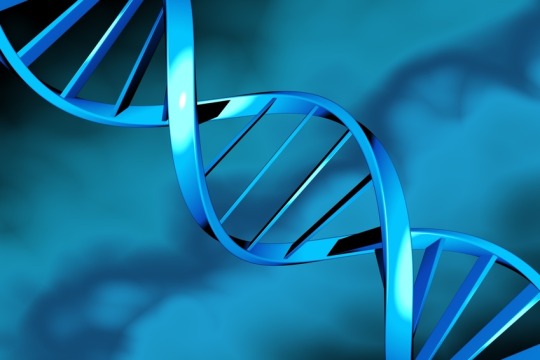
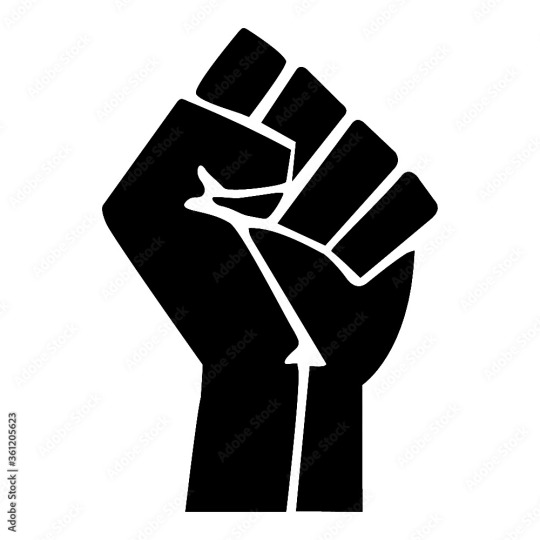

I was also a victim of social stigma, despite being right-handed. It was during a dinner with my family that a sudden thought popped into my head: ‘lisoda gyud diay siguro magkaon gamit wala nga kamot uy (using my left hand to hold the spoon) ’, and so to satisfy my curiosity, I then proceeded to eat with my left hand. A few seconds later, my father noticed it and immediately said, ‘tsk! Ayaw pag winalhon kay sa diablo na, maanad ka ana’.
With left-handed people being the minority globally, the expectation to adjust to the ways of right-handed people has become a default practice. It is not only schools that necessitate adjustment in handedness. Challenges for lefties are also manifested in music instruments, spring notebooks, scarcity of binary medical tools, lack of ergonomic furniture, and the list goes on. There are also cultural communities that highly value the use of the right hand in tasks such as writing and eating. More than cultural pressures, other factors are being considered as well: genetic, developmental, and hormonal. All of which will be tackled in the succeeding paragraphs.
A study by Harris and Carlson (1988) presents that there is a correlation between genetics and hand preference. Their theory introduced two categories of left-handedness: pathological and familial. Pathological left-handedness is simply brought about by pathologies that alter a baby’s supposed hand preference. Meanwhile, the familial category attributes left-handedness to family influences. Under the pathological left-handedness lies the idea of developmental instability concerning birth stress and birth weight. Stress can compromise the birth weight of a child. When this occurs, oxygen level depletes which negatively impacts the left hemisphere of the brain responsible for controlling right-handedness. The thing is, it takes a major gene effect that could be tested to firmly establish this categorization. Perhaps, this begs for more elaborated research to prove such theory.
We can also look at how cortical growth is affected by intrauterine sex hormones such as testosterone. When neural development is interrupted by elevated levels of testosterone, it causes physiological changes and one of which is the left-handedness of the child. In fact, testosterone is known for inhibiting immunity-building (Geschwind & Behan 1982; McManus & Bryden 1991 as cited in Llaurens, Raymond, & Faurie 2009). For this reason, left-handedness is associated with pathologies and disorders, perpetuating the idea that lefties have shorter life spans.
In the face of all findings concerning genetics and fetal development in relation to sinistrality, it must be considered that culture is also a potent force that influences handedness. After all, DNA is not the only thing inherited from our parents. The main reason why other studies struggle to investigate the genetic component of handedness is simply because genetics is intertwined with other factors. Or maybe, it is not really about the genes at all.
Evolution through epigenetic variation makes more sense than genetic variation. This means that left-handedness will still emerge with or without alteration of DNA sequence. This is only for as long as environmental conditions that cause left-handedness to our ancestors and the people today are still present. That is not to say that DNA is irrelevant but epigenetic variations can occur at a higher rate than genetic variations because of its capability to withstand changing environments and occur simultaneously (Jablonka and Lamb 2005). But if we talk about the variation that accounts for the diversity of handedness, handedness polymorphism is worth considering. Polymorphism suggests that hand preference is situation-dependent. Some people are dominantly left or right-handed, yet there are still tasks that they can perform efficiently with the use of their less dominant hand. This is probably why left-handed people can co-exist with right-handed people, regardless of what hand is favored by the situation!
Indeed, there are cultural practices and other basic human activities that neglect or do not consider the 'minority' left-handed. There are several fields wherein being left-handed is quite disadvantageous, such as the usage of tools like can openers and alike, wherein it only caters to right-handed individuals, or in cultures that write from left to right (which is the most common way of writing), or desk arrangements in offices, or even the mouse and keyboard orientation of computers. Left-handed individuals are also recipients of social stigma that is associated with their traits. An article written by Rose Eveleth in 2013 mentioned several negative connotations corresponding to being a lefty. It is considered impolite to offer one's left hand to anyone, even for assistance, in many Muslim countries across the world. This discrimination goes a long way back in history, including those of the West. If we also look at their languages, the ‘left’ word originated from the anglo-saxon word ‘lyft’ which means broken. The word ‘sinister’ originated from the Latin language, which means left. The word ‘linkisch’ in German means awkward. The Russian word ‘levja’ means untrustworthy and also being deemed an insult, and this linguistic investigation on ‘left’ negative connotations goes on a long list. As I skim through articles for this blog post, I encountered a few religiously associated negative connotations on being a lefty. Considering how we value religious beliefs, maybe this bias accounts for the social attitude we have for left-handedness.
In the sports context, there are some situations where lefties face challenges. This includes the availability of sports equipment such as golf clubs, baseball clubs, etc. that are commonly tailor-fitted for right-handed players. However, being left-handed in some sports is sometimes even considered advantageous. If you closely follow basketball and the NBA, there are several respected and successful Hall of Famers in the NBA that are lefties; take David Robinson and Manu Ginobili, for example. In volleyball, one of the most popular, if not the most popular, is the Japanese player Yuji Nishida, a left-handed player. Even in boxing, our very own Manny Pacquiao takes the southpaw stance (a favorable left-hand stance). In my many years of playing these sports (basketball and volleyball), I always struggled to guard (basketball) and read (volleyball) opposing players who were lefties. Apparently, my struggle is backed by an article published by Loffing et al. in 2011 saying that left-handed players are indeed at an advantage in sports, specifically volleyball. The authors of the article tried to account for this phenomenon using Faurie and Raymond’s hypothesis named ‘negative frequency-dependent selection’. In biology, one classic example of negative frequency-dependent selection is the maintenance of different color morphs in prey species. For instance, if there are two color morphs (e.g., "A" and "B") in a population of prey animals, the success of each morph may depend on the frequency of the other. If morph A is rare, predators may be less adapted to recognize it, giving it a fitness advantage. However, if morph A becomes common, predators may adapt and start to recognize and prey on it more effectively, reducing its advantage. In volleyball and basketball, left-handed attacking players can be compared to those of prey, and facing these types of players was always not easy. Although in basketball, a recent approach to the ball game has left lefties with little advantage nowadays, guess what? In a team game where time matters, a little advantage means a lot. It was in volleyball that I admired left-handed players so much that I came to the point of envying lefties and wishing that I was a lefty as well.
The asymmetric hand use of humans only means that handedness is not a neutral trait. More often than not, the extent of its advantage and disadvantage is dictated by socio-cultural and environmental pressures. But if we really are eager to determine what makes left-handed people left, then it is about time that we have an updated study that examines different environments to uncover the type of selection that acting on handedness. Despite sociocultural stigma acting on this rare trait, success on fields like sports will hopefully make us realize that being lefty is not so bad at all.
Question: Following a Darwinist perspective, if being left-handed is associated with being ‘evil’ and ‘unacceptable’, how come did it survive?
Bibliography
“APA PsycNet.” n.d. Psycnet.apa.org. Accessed January 4, 2024. https://psycnet.apa.org/doiLanding?doi=10.1037%2F0033-2909.110.2.237.
Eveleth, Rose. 2013. “Two-Thirds of the World Still Hates Lefties.” Smithsonian Magazine. May 17, 2013. https://www.smithsonianmag.com/smart-news/two-thirds-of-the-world-still-hates-lefties-64727388/.
Geschwind, N., and P. Behan. 1982. “Left-Handedness: Association with Immune Disease, Migraine, and Developmental Learning Disorder.” Proceedings of the National Academy of Sciences 79 (16): 5097–5100. https://doi.org/10.1073/pnas.79.16.5097.
“Google Scholar.” n.d. Scholar.google.com. Accessed January 4, 2024. https://scholar.google.com/scholar_lookup?title=Brain+lateralization+in+children:+developmental+implications&author=L.J.+Harris&author=D.F.+Carlson&publication_year=1988&.
Llaurens, V, M Raymond, and C Faurie. 2008. “Why Are Some People Left-Handed? An Evolutionary Perspective.” Philosophical Transactions of the Royal Society B: Biological Sciences 364 (1519): 881–94. https://doi.org/10.1098/rstb.2008.0235.
Loffing, Florian, Jörg Schorer, Norbert Hagemann, and Joseph Baker. 2011. “On the Advantage of Being Left-Handed in Volleyball: Further Evidence of the Specificity of Skilled Visual Perception.” Attention, Perception, & Psychophysics 74 (2): 446–53. https://doi.org/10.3758/s13414-011-0252-1.
1 note
·
View note
Text
youtube
The Patriot Game · Judy Collins
Whales & Nightingales ℗ 1970 Elektra/Asylum Records
13 Comments "It seems no one on youtube has posted a version containing ALL of the verses, including Luke Kelly, who leaves out the verse about James Connelly. Thanks to Wikipedia, I now know all of the verses."
youtube
Tribute to Fergal O'Hanlon who died from his wounds alongside his comrade Seán South after a daring raid by the Irish Republican Army on Brookeborough RUC Barracks as part of Operation Harvest 1956 - 62.
4 Comments "Well, with God on our Side, Bob Dylan didn't know he use this wonderful song"
youtube
Written by Irish poet Dominic Behan, the brother of legendary playwright Brendan Behan, this bitter reflection on the ongoing partition of Ireland and the IRA's often violent attempts at reunification was brought to the U.S. in the late 1950s by The Clancy Brothers and Tommy Makem. It has been recorded by dozens of folk singers on both sides of the Atlantic, including The Dubliners, Luke Kelly solo, the Wofhounds, Judy Collins, and many more. The lyrics commemorate the deaths on New Year's Eve of 1956 of two very young soldiers of the IRA, Fergal O'Hanlon and Sean South, who were killed while trying to blow up a barracks of the Royal Ulster Constabulary in County Fermanagh in Northern Ireland. The Kingston Trio here is using the same lyrics as the Clancys - lyrics that elide Behan's verses about James Connolly being executed by the British while strapped to a wooden chair because he was too wounded to stand, as well as a justification for killing policemen and an indictment of the first president of the Republic of Ireland Eamon de Valera's acceptance of the division of the island nation in 1922. Every other version of this song uploaded to YouTube has ignited flaming and partisan commentary about the song and the ongoing troubles that inspired it. As much as it is an Irish Nationalist anthem, Behan's composition also remains implicitly a powerful lamentation over the sorrow and tragic cost of war and violence.
48 Comments
youtube
48 Comments
"The original version is a resolute young rebel with the only regrets that he was not more successful in facing down the police and those who he saw as traitors. The version made famous by the Clancy Brothers dropped the referenced de Valera (But still de Valera is greatly to blame, For shirking his part in the patriot game) who was the President of Ireland and the following verse. “I don't mind a bit if I shoot down police They are lackeys for war never guardians of peace And yet at deserters, I'm never let aim The rebels who sold out the patriot game.” The edited version is a song that weeps with regret for getting caught up in the patriot game. The original is a resolute defense of his actions and attack on those who sold out the patriots of the time. The tune may sound familiar as Bob Dylan used it for his incredible song, “With God on Our Side” which he must have picked up while playing on bills with the Clancy Brothers. This version is of the original lyrics as sung by the great Luke Kelly. THIS IS ONE TO TURN UP LOUD!!!!!
0 notes
Text
#OTD in 1889 – Kathleen Behan, née Kearney, ‘Mother of All the Behans’ and folk singer is born in Dublin.
“What I have, I hold.” –Kathleen Behan History has cast Kathleen Behan in supporting roles, reducing her to the “sister of” or “mother of” someone important. But she deserves so much more – Kathleen was a political powerhouse, raconteur, and gifted singer who, in the course of her long and often tragic life, managed to have a bit of fun along the way. Kathleen Kearney was born in a Dublin…

View On WordPress
#&039;Mother of All the Behans&039;#&039;The Laughing Boy&039;#Brendan Behan#Brian Behan#Dominic Behan#Dublin#Ireland#Kathleen Behan#Michael Collins#née Kearney#Peadar Kearney#RTÉ#Seamus Behan#Stephen Behan
8 notes
·
View notes
Text
231: The Pogues // If I Should Fall from Grace with God
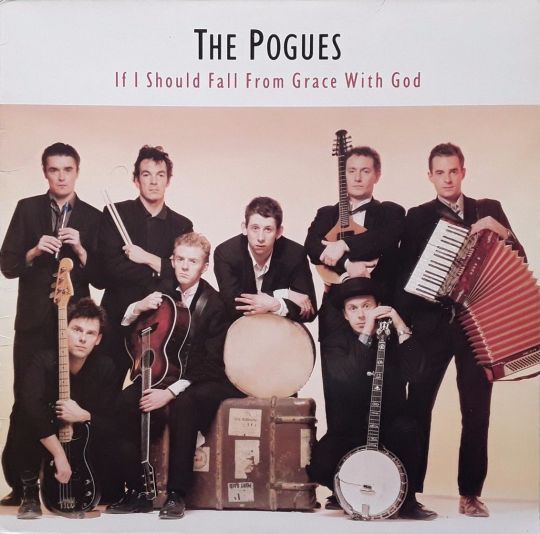
If I Should Fall from Grace with God The Pogues 1988, Stiff
Take my hand, and dry your tears babe Take my hand, forget your fears babe There’s no pain, there’s no more sorrow They’re all gone, gone in the years babe
Ah Shane, another man surely claimed by the number one cause of death in Ireland: Irishness. Sometimes it felt like you had to take your finger and fish around in his horrible mouth for all the poetry you’d been told was in there, but if you kept at it you’d always pull out some slurred gem eventually. Like a lot of men of my genre, to me the Pogues personified down-but-not-out romance, the sort of music for cavorting and resisting but also for sliding your heavy boots along some dusted wood floor, with your hands around a woman’s waist and your exhausted nose in her good-smelling hair. They made masculine music, certainly, but in that manner that admits tears and tenderness among men, the way enough beer can blur the stiff boundary between straight dudes and whiskey can burn right through it by the end of a night. And they made smart music too, cognizant of history, ever on the side of the common person, but with a maniac zest for bloody myths and black-humoured political sloganeering.

MacGowan loved doomed poets like Federico Garcia Lorca and Brendan Behan, and it seemed that in his understanding there was no separating the doom from the poetry. Certainly he was avid in his commitment to both. In his lyrics and in his stage presence, he presented the figure of a tattered, drunken tramp, whose low state gives him vision, reckless freedom, and the right to broad sentimentality. It’s a pose that’s existed about as long as literature itself has, and there’s plenty of Irish and English folk songs that lean into the trope—what MacGowan, via his punk roots, brings to the table is that he sounds like that character when he sings. It’s moving when a ruinous drunk opens their gob and a high pure “Danny Boy” voice emerges. But with MacGowan, you feel like you’re right there in the bar or the prison cell or the ghostly pirate ship where the action is happening.
Of course, the Pogues were always more than just Shane, and it’s not unlikely he’d be a very obscure figure today if he hadn’t joined forces with such a formidable crew of instrumentalists. Though I’m partial to the MacGowan-dominated Rum Sodomy & the Lash, their most successful record, If I Should Fall from Grace with God, is the moment the band and their brilliant frontman achieved equilibrium. Many of the album’s finest songs are co-writes between MacGowan and banjo player Jem Finer, while new additions (and actual Irishmen) Terry Woods and Philip Chevron (himself passed away in 2013) each contribute moving originals. The band is every bit as put-together as Shane is not, but the record finds them as always shifting gracefully between hellraising punk, rare old dewy folk, and honest-to-God Christmas music without once seeming out of their element. On the better than respectable (though less than classic) albums that followed, they would effectively take up the slack left by their decreasingly functional singer. Even when Shane was often little more than a reeking stage prop, they remained a force in concert.
youtube
I own the first three Pogues records (and the Poguetry in Motion EP), and prior to today I hadn’t decided which I would write about. But when I heard the news, I knew immediately it would be Grace’s “The Broad Majestic Shannon” that would be the song to make me weep; and that decided it. Lesser known than the similarly swinging “Fairytale of New York,” but no less special to my heart, it tells in plain speech of the pain and relief in time’s passing. As MacGowan told it, “Shannon” is “a song about an Irishman returning to his hometown in County Tipperary after many years of living in London, and finding that everything about the place he grew up in has changed or disappeared.” He remembers a last drink with friends and a lover, a pensive moment sat at a crossroads where he took the place in a final time before pushing off. Sometime later, he returns to a wall where that crossroads once stood and stands by it a while, pushing around some old rubbish with his foot before shaking his head wryly at himself for being so sentimental about it. Threading those two moments in time there’s the chorus I quoted at the top of this piece, this rich, tender, accepting thing. On the first pass through, it could be the speaker comforting his loved ones on the eve of his departure; on the second, it seems the memory of his own words gently chides and comforts him. “The Broad Majestic Shannon” makes the iron, inescapable fact that all people and things must pass away sound like a blessing, and that coming to accept this fact is the requirement that makes truly living possible. Poets tend to be denied the benefits of their own insights, but they say even in his ruin Shane was content with his lot. He loved and was loved. And now he’s gone where there are no tears or cops or dentists, and we have our time together before we go too.
youtube
231/365
#shane macgowan#the pogues#celtic rock#folk punk#'80s music#fairytale of new york#broad majestic shannon#tribute#music review#vinyl record#dentistry#whiskey
6 notes
·
View notes
Text
Irland ohne rettenden Schirm

(Der Beitrag wurde erstmals im Februar 2014 veröffentlicht) Dublin - Eine Art Halali verkündet die pünktliche Landung von ryanair in Dublin oder ist es Verkaufsjubel? Kurz vorher ließ sich das mit Reisebuch und Internet-Recherchen präparierte Ehepaar auf den Nebensitzen die teuren aircoach-Tickets für die Busfahrt in die Stadt aufschwatzen. Die kosten mehr als das dreifache einer Fahrt mit dem Linienbus, und vielleicht hätte ich sie warnen sollen, aber Irland, das gerade den Rettungsschirm verließ, braucht jeden Cent.
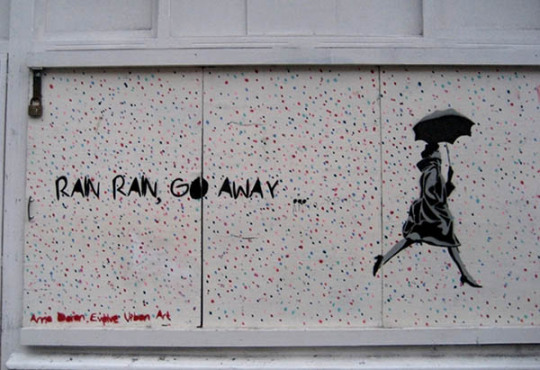
rain, rain... Foto: Beate Lemcke Aufgekratzte Stewardessen reden einem jungen Mann zu, den halbvollen Trinkbecher nicht in der Maschine zurückzulassen, sondern auf die Heimkehr zu leeren: Cmon, one more sluug, an anodder wii drop... Brav trinkt er aus, dann wankt der Lädierte im Schneckentempo mit Klammergriff am Geländer die Gangway runter. Auch meine Ankunft gestaltet sich suboptimal. Beim Chipper zieht mir die genervte Bedienung den Teller trotz bereits im Fisch steckender Gabel wieder weg, wegen Verwechslung. Das neue Mahl sieht blass aus und wird erst genießbar, nachdem ich Fisch und Chips nochmal ins Öl werfen ließ. Mein jahrelanger innerer Kampf ist vorerst entschieden: Goodbye, "Beshoff", ich bin ab jetzt Stammkunde bei "Leo Burdock". Selbstverständlich muss ein Fisch schwimmen, was sich mit der Idee vom Begrüßungs-Pint of Guinness deckt. Später wird der Bronze-James-Joyce auf der Earl Street North Zeuge, wie ich der Zechprellerei bezichtigt werde. Das hat man davon, wenn man nach alter irischer Sitte sofort zahlt.

Green is more... Foto: Beate Lemcke Eingehüllt in den besonderen Sound Dublins mit seinen mövendurchkreischten Morgen mache ich mich auf zum Friedhof von Glasnevin. Brendan Behan, dessen Grab ich dort besuchen will, hat dem Royal Canal, den ich zunächst queren muß, ein Denkmal gesetzt mit seiner Interpretation von “The Auld Triangle” (verfaßt von seinem Bruder Dominic für Brendans Theaterstück “The Quare Fellow”). Die schwer befahrene Whitworth Road verläuft parallell zur Wasserstraße und weist nur auf einer Seite einen Fußweg aus. Ausgerechnet auf der anderen mahnt ein Verkehrsschild "Caution blind people training". Das läßt ungute Gedanken an sadistische Spiele aufkommen, aber in der Nähe gibt es eine Institution für people with sight loss, und für die ist der schreckensreiche Trainingsparcours wohl gedacht. Blumenläden und einige Vorgärten zeugen davon, daß das Alpenveilchen in Irland gerade eine Renaissance erlebt. Ausgerechnet diese vergessenen Pflanzen, derer – zumal im Osten Deutschlands – viele überdrüssig sind, waren sie doch über Jahrzehnte neben der Nelke die einzige florale Zier, an der kein Mangel herrschte. In das Licht der tiefstehenden Januarsonne getaucht ist der Friedhof von Glasnevin schlechthin überwältigend. Die Weite, die Größe, der urtümliche Baumbestand!

Augenbaum auf dem Glasnevin Cem. Foto: Beate Lemcke Es braucht eine Weile, bis ich das ungeschmückte Grab von Brendan Behan gefunden habe. Noch länger allerdings soll es dauern, als ich mich am Folgetag auf die Suche nach der Grabstätte meines irischen Lieblingsautors Flann O'Brien begebe, für dessen Theorie vom Molekülaustausch Mensch-Fahrrad ich schon häufig Belege gefunden zu haben glaube. Dass sie so schwer zu lokalisieren ist, liegt erneut an der Schmucklosigkeit der Ruhestätte. Und an des Meisters Pseudonymen. Soll ich nun nach Brian Nolan suchen, nach Brian O'Nolan, nach Flann O'Brien oder Myles na gCopalleen oder Gopaleen? Der Friedhof, ca. 12 Kilometer südlich von Dublin gelegen, ist noch größer als der in Glasnevin. Dafür weniger grün, graue Grabfelder soweit das Auge reicht. Schließlich stehe ich neben dem unscheinbaren Familienstein der Ó Nuallain's, auf dem auch der Name Brian vermerkt ist und daß er 1966 verstarb. Nichts aber über seine Begabung ("So hätte Joyce geschrieben, wenn er nicht bescheuert gewesen wäre"), kein Blümchen, nicht mal ein Alpenveilchen, nichts. Ich bin froh, vorgesorgt zu haben und kippe einen guten Tropfen Whiskey auf seine "Schulter", um dann selber einen Schluck zu nehmen, der Brisanz meiner Unternehmung angemessen. Im Café am Friedhofstor drängt mich die warmherzige Bedienung, zwei alten Herrschaften zu erzählen, was ich am Grab gemacht habe. Die freuen sich, und der Herr zitiert sogleich aus The workmans friend : "When things go wrong and will not come right, Though you do the best you can, When life looks black as the hour of night - A pint of plain is your only man".

Schuluniform. Foto: Beate Lemcke Die fragile Greisin weiß zu berichten, dass sie zuweilen zuschauen darf, wie Brians jüngster Bruder Micheál mit Regenschirm durch Dun Laoghaire spaziert. Später im Sweny, wo Leopold Bloom seine Lemon-Seife für Molly kaufte, erfahre ich von einem der Joyceaner, daß dieser ab und an O'Nolans Nichte Roisin in Dublin trifft. Er will ihr von meiner Whiskey-Attacke erzählen. (Tut mir ja selber leid, daß ich nicht des Dichters Lieblingstropfen Middleton dabei hatte...) Übrigens war mir auf dem Rückweg aus Blackrock zum wiederholten Male aufgefallen, daß ich bei religiösen Slogans in Irland schwer zu ergründen vermag, ob etwas Ernst, Nonsens oder Ironie ist. So las ich an einer St. Thomas Kirche "Jesus is my rock and I am ready to roll!" (?)

Ende einer Institution an der Frederick Street Nth. Foto: Beate Lemcke Ins Burdock in Temple Bar komme ich an meinem letzten Tag in Dublin gerade noch rechtzeitig, um einen Streit zu schlichten. Die Jungs am Frittiertopf diskutieren, was wohl die Hauptstadt von Deutschland sei – München oder Frankfurt. Ihr Herz immerhin scheinen sie am rechten Fleck zu haben, denn fürs Restgeld steht eine Schale auf dem Tresen "donations to kill Justin Bieber". Für mich geht es weiter nach Norden, und nun brauche ich doch einen Regenschirm. Beate Lemcke (Januar 2014) Beate ist nicht nur eine begnadete Autorin und ausgezeichnete Irland-Kennerin, sondern sie ist auch Inhaberin des Szene-Ladens Irish Berlin, Große Hamburger Straße 36A, 10115 Berlin. Titelfoto / Nahe Aungier Str. / Foto: Beate Lemcke
Noch mehr Fotos:

Glasnevin lädt zum Spaziergang. Foto: Beate Lemcke

Idylle in Phibsborough. Foto: Beate Lemcke
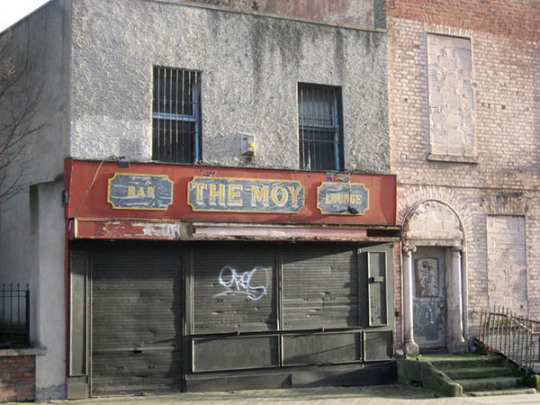
Im Norden Dublins, wie eine Western-Kulisse. Foto: Beate Lemcke

Irische Tür. Foto: Beate Lemcke
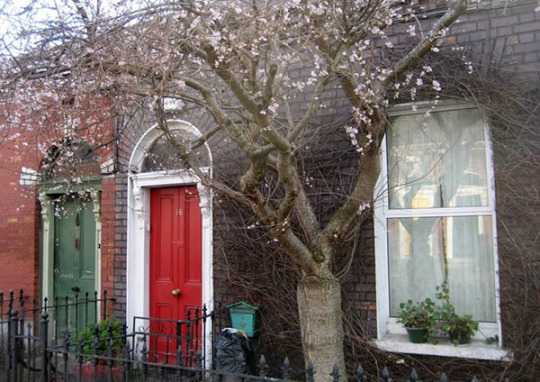
Foto: Beate Lemcke
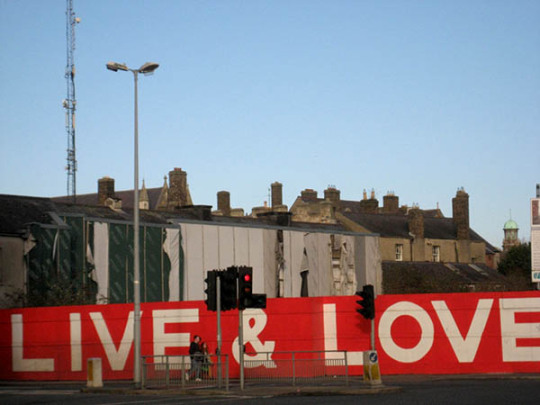
Foto: Beate Lemcke

Foto: Beate Lemcke

Philip Lynott. Foto: Beate Lemcke

Stephen's Green Centre. Foto: Beate Lemcke
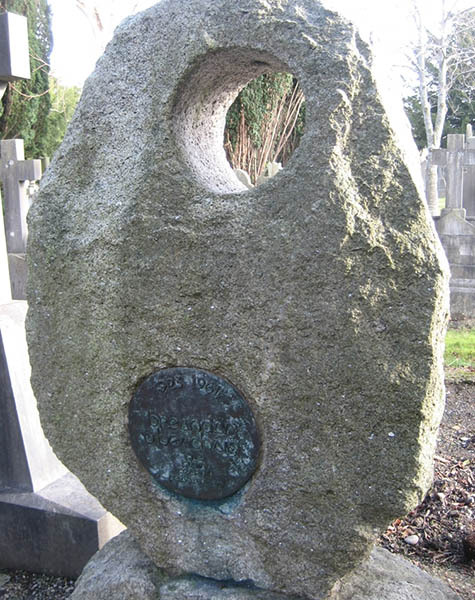
Brendan Behan, Glasnevin. Foto: Beate Lemcke

Brian Nolan, Dean's Grange Cemetery. Foto: Beate Lemcke

Dean's Grange Cemetery. Foto: Beate Lemcke
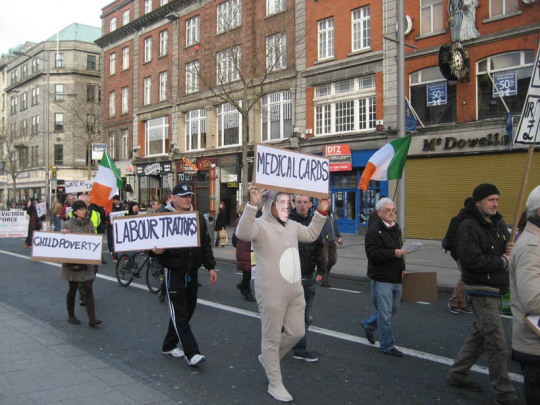
Demo in der O'Connell Street. Foto: Beate Lemcke

Diese Tür ist zu... Foto: Beate Lemcke
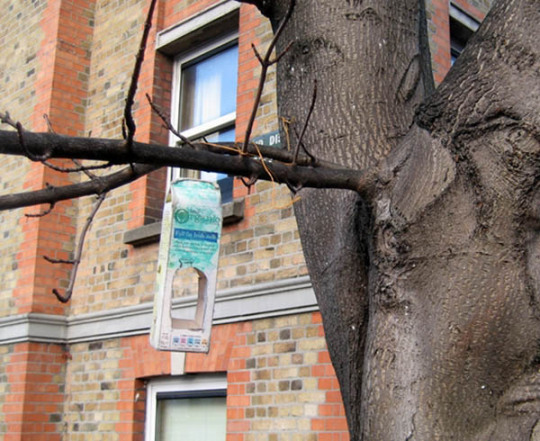
ein Tetrapak wird Vogelhäuschen. Foto: Beate Lemcke

Foto: Beate Lemcke

Ende einer Institution an der Frederick Street Nth. Foto: Beate Lemcke

Fahrrad-Ersatzteillager. Foto: Beate Lemcke

Glasnevin Cemetery. Foto: Beate Lemcke

Caution. Foto: Beate Lemcke
Auch interessant:
Read the full article
0 notes
Photo

Is "Come Out, Ye Black & Tans" just the 1920 version of "Fuck The Police?" "Come Out, Ye Black and Tans" is sort-of quintessential example of what you might call Irish Rebel Songs. With lyrics attributed to Dominic Behan, the tune is sort of a pissing match aimed at the Royal Irish Constabularies, the British police force in Ireland during the War of Independence. — Read the rest https://boingboing.net/2023/03/01/is-come-out-ye-black-tans-just-the-1920-version-of-fuck-the-police.html
#Post#acab#all cops are bastards#Bandcamp#celtic rock#come out ye black and tans#folk music#forfocséic#Fuck the police#irish#Irish music#irish rebel songs#Irish republican army#Irish trad#Irish traditional music#mashup#mashups#music#musical genre mashups#nwa#st. patrick's day#Thom Dunn#Boing Boing
0 notes
Video
youtube
This proved less than what I expected (an actual mix of Come out ye Black & Tans by The Wolfe Tones and Fuck tha police by NWA, which would be fucking AMAZING), but I'll do. @tuulikki
Thom Dunn - Come Out, Ye Black and Tans (Fuck The Police)
I was born on a Dublin street, where the royal drums did beat And those loving English feet, they'd walk all over us And every single night, when me da would came home tight He'd invite the neighbours out with this fine chorus
Fuck the police Comin' straight from the underground A young mick's got it bad in this town Because Tans have authority to kill the majority Well fuck that shit, 'cause I ain't the one For a punk motherfucker with a badge and a gun To be beatin' on, and thrown in jail We can go toe to toe in the middle of a cell
Come out ye Black and Tans, come on and fight me like a man Show your wives how you won medals down in Flanders Tell them how the IRA made you run like hell away From the green and lovely lakes of Killashandra
Come tell us how you slew them poor Arabs two by two Like the Zulu, they had spears and bows and arrows How you bravely you faced one with your 16-pounder gun Till you frightened them poor natives to the marrow
Come let us hear you tell how you slandered great Parnell When you threw him well and truly persecuted Where are the sneers and jeers that you bravely let us hear When our leaders of '16 were executed?
Come out ye Black and Tans, come on and fight me like a man Show your wives how you won medals down in Flanders Tell them how the IRA made you run like hell away From the green and lovely lakes of Killashandra
The time is coming fast and I think those days are near When each yeoman, he will run before us And if there be a need, then our kids wil sing, "Godspeed!" With a verse or two of Stephen Behan's chorus
Fuck the police Comin' straight from the underground A young mick's got it bad in this town Because Tans have authority to kill the majority Well fuck that shit, 'cause I ain't the one For a punk motherfucker with a badge and a gun To be beatin' on, and thrown in jail We can go toe to toe in the middle of a cell
Come out ye Black and Tans, come on and fight me like a man Show your wives how you won medals down in Flanders Tell them how the IRA made you run like hell away From the green and lovely lakes of Killashandra
#it was a viciously sharp slice of mango wasn't it sir?#prison ballads#Thom Dunn#Come Out Ye Black and Tans (Fuck The Police)#NWA#The Wolfe Tones#the hired man#the phantom of liberty#come out ye black and tans#fuck tha police#dominic behan
14 notes
·
View notes